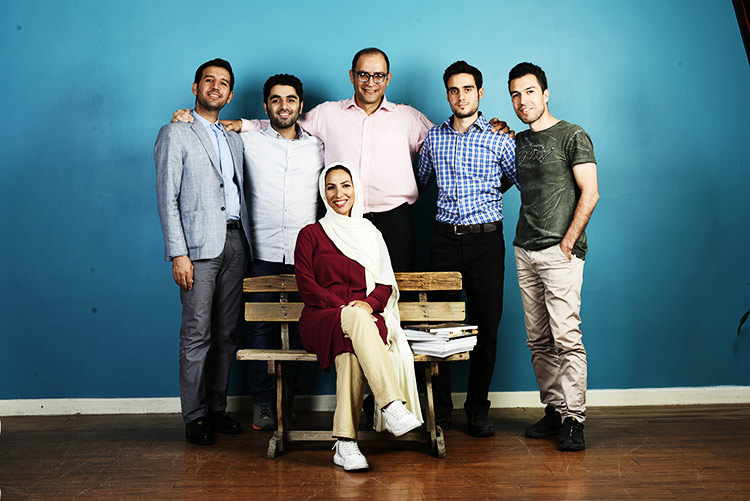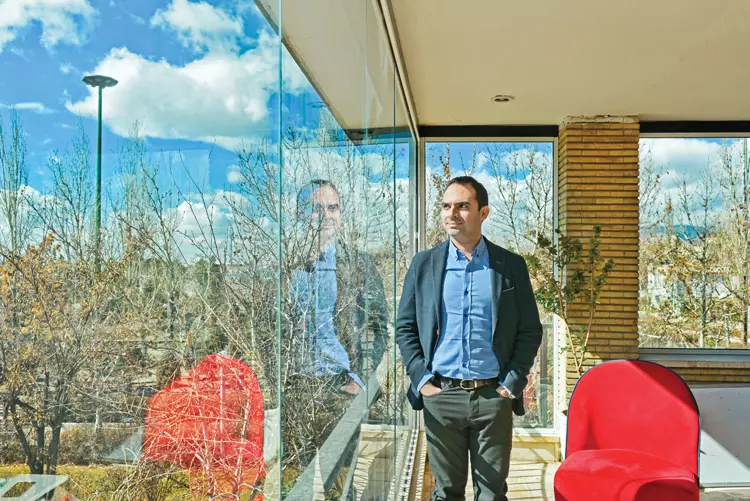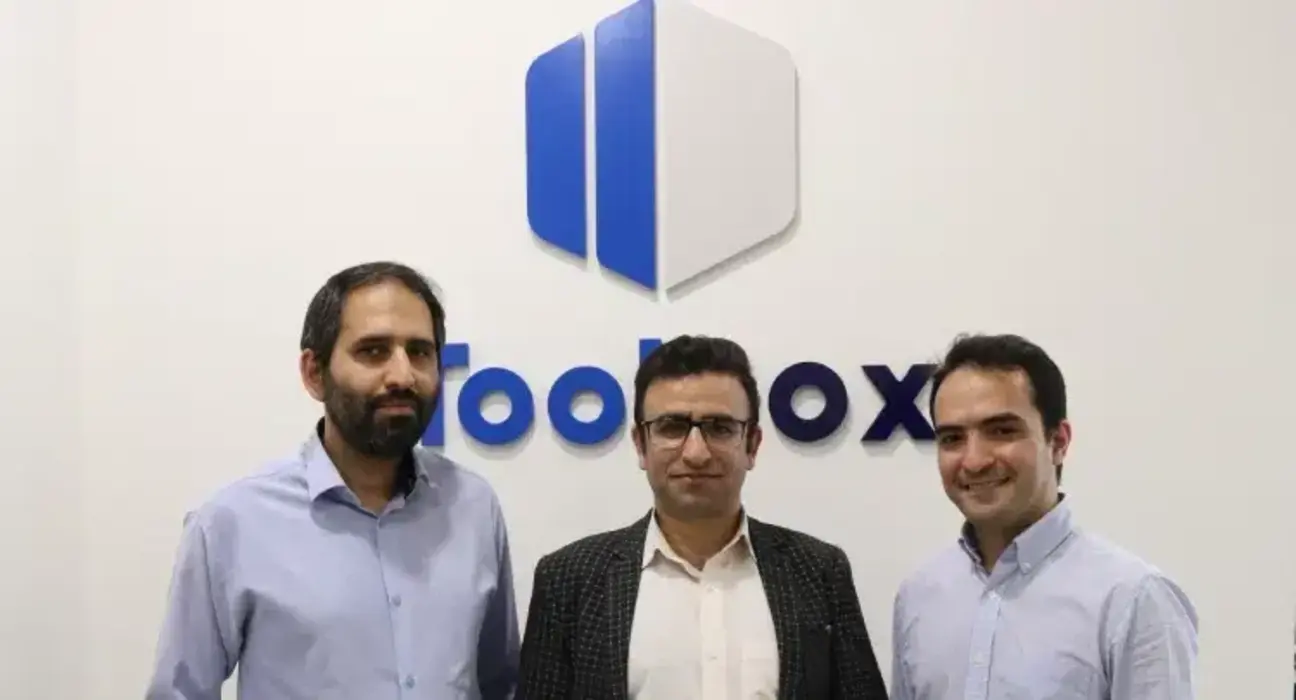Startup quake in Iran!
Big figures in education market show that it has capacities for businesses; businesses that are excluded from attached pages of commercials in newspapers and each one of them has become the infrastructure for launching a startup.
Shanbe has an interview with Naghmeh Aghili, founder of Ostad Salam, Adel Talebi from Tizland, AmirHossein Emami from Samaneh 21, Milad Azizpor from Café Tadris, Amir Rahimi Nejad from Ostad Bank and Kazem Zarei from Raibod and there it examine the market of these businesses, the challenges they are faced with and the outlook of investors towards this field.
-
Educational system in Iran is defined within a special framework and different levels. Educational institutes, universities and private and non-public sectors. In recent years, online education has been added to this field. I think it’s better to answer this question first that where online education is in Iran education system and in other words which capacities it is going to add to this system?
Rahimi Nejad: startups are launched based on customer’s need. On the other hand there isn’t such a thing in a country that the government fills the gaps of the society, but other sectors including Iran entrepreneurship ecosystem can enter these fields. Because there are gaps and startups can help filling them.
For example, there is students’ need to supplemental classes and private teachers in the society but how we can facilitate meeting this need is something that for example Ostad Bank has entered it.
Just like what DigiKala has done and made purchases easy for people, we want to facilitate access of customers to their needed services.
Zarei: I think online education hasn’t been formed just for filling the gaps of state educational system. Electronic education is a new version of education that can fill some of educational gaps in Iran as well.
Presence in this field is inevitable and this has happened following the society’s need to use of online service. In fact, the fast growth of communication and information technology has reached education.
Aghili: in fact each one of us is startups and sites that provide information, service and tools online for education.
Talebi: no only in Iran but also in every country, there are public organizations for education. Government has the duty to provide the minimum standard of education.
I was present in management section of many famous schools in Tehran for 14 years. I have found some needs and based of which Tizland is launched.
In this field, Ministry of Education and public educational system hasn’t entered at all or if it has, it made problems.
For example school list. People didn’t have access to school list in order to enroll their children. Tizland entered this field and created a database for schools.
There isn’t any good digital content and such a need is the base of presence of people without any expertise who hold seminars and give invalid content to people. In fact they are showmen who take advantage of people’s need.
Tizland uses prominent professors for producing scientific and standard content and it gives this content not only to people in Tehran but also to hundreds of students across Iran thanks to the internet.
On the other hand I think making such content is not the responsibility of Ministry of Education but there is such a need and private sector in the form of startup respond to it.
We had to investigate advertisements in newspapers in order to have access to big part of this service and needs before. But now this is possible in online space.
Or for choosing a school we had to go to each one of schools and asked about their educational quality but now all schools are being provided in a platform and people write their comments and this becomes a tool for choosing a school.
I consider myself a facilitator who provides high quality content to its users and has made accessibility easy.
-
In fact with expansion of online education the focus on accumulation of facilities and educational and high quality content in a big city like Tehran would be decreased.
Talebi: exactly and it creates social justice. Because the produced content can be provided to for example people in Khash and Kohkiloyeh and Boyer Ahmad.
Aghili: we have online chat and conversations there shows such needs. For example students should be in Tehran and pay for accommodation to have access to educational facilities and have a specific teacher or skill.
But for example Ostad Salam has removed all these costs. At first there are doubts for them and it seems that they can’t believe but we try to make them trust us little by little.
Azizpour: I want to mention that the most important function of educational startups is providing the infrastructure for access to a good teacher or high quality content.
Another problem that can be solved by use of online capacities is related to the high costs and high wages of teachers and private classes, but with online service, these costs would be reduced by more than a half.
Also in terms of educational justice, we have defined this responsibility in Café Tadris that the teacher gets its credit from the comments of students.
For example our experience in Café Tadris was that we didn’t work with a teacher who had less positive comments from students and this means educational justice which is considered a help to Ministry of Education to some extent and at this point we add something to the topic of education and we are not only facilitator.
Even about use of teachers, there is a justice. There are many graduates who may not find the opportunity to teach in Modaresan Sharif but based on evaluating them, we see that they can provide high quality content to the students and for example Café Tadris is a place for employment of such people. This is a kind of adding facility and service to educational society.
Emami: I want to point to the fact that startups in the field of education can be a place for linking users. Also the presence of such portal would facilitate the access of parents to their children’s behaviors and the connection between family and school.
Zarei: I agree with Mr. Talebi that online education can facilitate learning process but this is not the whole thing.
Content and the quality of content are very important. We have a platform where we can make high quality content with educational standards.
Standards to which public organizations have reached and public education can provide these standards to wide range of people who are interested.
-
One of the criticisms towards the official educational system of the country is the quality of education; you act as a facilitator mostly; should you connect one teacher to several students? Can’t startups and online field help in promoting the quality of education? For example through producing better content.
Talebi: the topic of quality is very complicated; especially in the field of education. In this field we don’t have even an exact tool for quality of education. Scoring system we have goes back to 1890 which was used in United States.
It was to give a score to a teacher not the student. That is, students would take exams and scores were a, b, c, and d and for example based on the number of As students got, the teacher’s score would be determined and it showed whether the teacher had acted well or not.
While in Iran the score is for students but scoring was for teachers and it was to evaluate the educational quality of teachers not the students.
That is, we have lost the way and made a mistake. On the other hand there are big problems like entrance exam and ….
Startups aren’t supposed to solve the problems that may have been prevalent in the country for 50 years and we are seeing the result now.
But I as an owner of a startup pay attention to the quality. Thus I look for valid sites in the world to see that they have done for quality evaluation. Now there is a good model in Amazon.
For example a book is provided and three categories can comment; editorial review, customer’s review and visitor review.
There are different; editorial are the expert people, customers are those who have bought and read the book, who can write its opinion after 3 months and visitors are those who have heard comments about this book in other places and now they are saying it.
All three would comment but in three different positions and this help the buyer to buy a product or a book and … with better quality.
Anyway providing high quality to the customer is our principal and a system that can’t provide quality would be a mortal system.
The one who provides better models for evaluation and examination of quality would succeed.
One startup would deal with teachers registered in Ministry of Education and current professors of universities for evaluating the quality of educational content and another startup may not agree with Ministry of Education and use Olympia elite and even those who are outside of education circle for any reason.
On the other hand Ministry of Education can’t do what we can; that is it can’t consider a special ranking between its schools.
Albeit minimums should be followed and based on which a license is given to a school but quality evaluation like what a startup can do, isn’t done in Educational system.
Aghili: this applies to teachers as well. Ministry of Education pays an equal salary to all of them, but there are teachers who can teach to not one student but to hundreds of students for ten hours outside working time through online webinars and all those who have access to internet can use the content and rate it.
Zarei: Ministry of Education has nurtured students who are dependent to class and school and if one day the teacher is absent, there isn’t any alternative for students in school, that is Educational system in Iran hasn’t created an environment in which students can learn regardless of teacher’s presence or absence.
-
Do you mean that you want to compete with Ministry of Education? Was that the duty of this Ministry to do such a thing and because it hadn’t done it, you went for it?
Zarei: no I don’t mean competition. We claim that we have created a space for learning; that is we want to move from teaching spaces towards learning spaces and this can be done by using web space and we consider it the proposal value of our work.
Talebi: I talk about education industry and when it comes to industry and market, we look for opportunity.
In reply to Mr. Zarei, I should say that you go to Ministry of Education and work for upgrading learning and I as a member of private sector, would find wherever this Ministry couldn’t have the adequate coverage and create a value chain.
If I can help quality growth, at the end I have helped the stability of my business, but I see this as my responsibility as a startup.
-
Mr Talebi talks about market and commerce. Which figures are there in this field in term of content production, the market of educational assistance and … in offline field?
Talebi: the information I have is about educational aid books that has financial turnover of more than 11000 billion toman and this is the only part of educational market in Iran.
-
There is another question that when Ministry of Education may consider startups’ presence like you as a conflict of union and for example confront you? Like those happened for Divar or Snap.
Aghili: I feel we are walking on the edge and I prefer not to consider myself an educational one.
Teachers produce content of Salam Ostad, students analyze teachers and we have contracts with institutions and provide educational content and why should I step aside and say I just want to observe?
We have education in many fields; even carpets and pilotage. Thus we would face challenges with cultural heritage organization, Ministry of Science and one or two other organizations and we should look for licenses.
Rahimi Nejad: We haven’t come for competition with Ministry of Education. It has determined duties but not to create a platform and provide services similar to us.
There is such a need in the society and startups can provide such services to people. Mr. Rohani government is interested to have a small government and allocate many parts to people.
Azizpor: I think we are so far from Ministry of Education, universities and other public educational organizations that it may not be necessary to talk about them. Because we are not supposed to replace them.
-
No startup is launched with the intention of replacing offline and traditional businesses. but this is the characteristics of the market that businesses reach conflict of interest in some point. For example, you may have an experience in this field.
Rahimi Nejad: we haven’t seen any support from public organizations and educational system but there isn’t an obvious disagreement from them.
Azizpor: I haven’t been interrupted so far. Because I believe that launching a business like Café Tadris isn’t educational.
-
Don’t you think that you haven’t faced any disagreement because your business is so small and there is no high income and large number of workforce attraction? Because disagreement with startups hasn’t happened right after their launch but when they reached their growth peak. Now what is your prediction of future?
Talebi: there is this danger and official educational systems would look at us as a disruption not a competitor.
Entrance exam has been the base of launching many businesses in Iran; including publishers of Educational aid books; since Ministry of Education couldn’t make students ready for the entrance exam and the level of entrance exam has been higher than the content of educational books, publishers have been formed that produce educational aid books; for example Alavi, GhalamChi, Gaj and …
Another field was the need for teacher and ads in newspapers were used for that. These services are offered online. Now what is the share of startups like OstadBank, Salam Ostad or Café Tadris in the market of educational aid? Maybe 5 percent.
But if this figure reaches to 15%, you would see the negative feedback of traditional competitors.
Azizpor: we are the online version of for example GhalamChi and Gaj. Why we should feel that we interrupt them. Or why should Ministry of Education have problem with us?
Talebi: GhalamChi has license of Ministry of Education. From where have you gotten the license? On the other hand, 5% of the price written on the back cover of each book in GhalamChi is given to Ministry of Education.
Azizpor: well, if I reach that level of growth so that I don’t face any disagreement, should I pay a percent? I may do that.
Aghili: they call us and say that they would close my company and when Ministry of Education doesn’t have workforce, how could you have 15000 workforces?
That is they haven’t even checked my site to see that some of our workforce are students who haven’t been graduated and teach for example PhotoShop.
I have experienced some of these cases. Right now they called the institution and told that our manager should call them. I’m afraid and I have told my fears to officials like scientific and educational vice president.
Talebi: even in the case of startups’ growth in this field, public educational system wouldn’t see any harm from them but they would be hurt from the evaluations which are done by startups in schools.
For example, a school gets a low rate and thus there would be a sensitivity because the business of this school has been threated.
When the case goes to the court, the startup would have to give the information about the one who gave a negative score to that school. Thus no one would trust startups anymore. Ministry of Education would become sensitive and other issues would arise.
-
What is the solution for preventing possible problems or what are your recommendations?
Rahimi Nejad: although virtual businesses have been launched, there would a hope that at least there is a specific reference for getting license, complaints and … to which we can refer.
Talebi: we should be aware that they don’t make me to give commitment like the one they got from startups in the field of FinTech; a commitment worse than TorkamanChia.
Because based on statistics, 11 percent of students in Iran go to private schools whose costs are 4300000 toman. There are schools in Tehran that receive 28 million tomans per year and in other cities this figure would be up to 2 million toman.
Startup growth would reach conflict of interest and challenge with these schools. In the market, we have private institution market, entrance exam teachers market, entrance exam institutions, educational seminars for answering multiple choice questions.
Also we should mention that now there are teachers who receive 600,000 toman per day from each student.
If one day startups give more percent and wage to famous teachers, they would use startups and challenges related to Snap and Divar would be created because interest and income of offline institutions would be endangered.
Rahimi Nejad: I think the union should determine rules for this field or if there is a related rule, it updates it and has correct prediction of possible problems in this field so that before problems like filtering and … arise, it takes legal measures.
Azizpor: I think lack of rules in this field, is the most important problem and challenge.
-
Mr Emami, do you think that you would face which problems and barriers in the growth of your business in the future?
Emami: right now many are working in parallel with us. When businesses like us are formed and launched, some people in traditional businesses find out what the capacity is and they ask themselves why they don’t launch a startup?!
And because these people have strong relations in public organizations, they try to create monopoly. Even in some cases, they take schools from others and work with them.
-
How much would they consider your schools as serious in your opinion?
Emami: what we do is a kind of making schools smart and causes every team that work with us becomes a manager that can control mechanisms related to educational trend easily in form of IT base; that is each one has its own choices.
If parallel links don’t interrupt our work, these figures would be obtained. There are small cities that although they sign up for our service, but we don’t hope that we work with them for example for 8 years because internet speed isn’t high in many of small cities in Iran so for example video files can’t be viewed.
Azizpor: whatever is online now, is in fact replaced by other things provided in offline and traditional space. For example, face to face classes in physical space is replaced by online education. We should accept this and shouldn’t say we don’t have friction at all.
-
From where did you get license?
Emami: we have gotten E-symbol but I myself didn’t refer to Ministry of Education because there are people with strong relations but they don’t cooperate and are looking for monopoly.
Rahimi Nejad: I referred to FATA police and Ministry of Education but there isn’t any license defined for platforms like us.
Emami: I sent marketer to schools and they welcome this move and they even wonder that such a program can facilitate their work.
Even with investigations I had, by using this space we offer them, paper use would decline dramatically. But the issue is those links because they know many schools and they are present in the body of educational system or have relations, so they think they can easily launch such a program.
While I am working with at least 5 professional programmers and I have passed many test and trial procedures.
-
I have this question related to investors’ insight towards educational startups; tell us your experiences and whether you were successful in attracting investors or not?
Aghili: I have attracted investors and they have bright insight towards this market. They work with us with lots of money. One of the concerns of our investor was the quality of education.
Especially education for remote cities, offering a discount for remote cities, even many of our employees are from other cities; that is in terms of education and employment for those in other cities. Also we hold online classes and teach work skills to people so that they can get a job.
We even provide employment base for graduates who don’t have job in our business and this is one of the reasons that the investor work with us.
In fact I want to say that they know this market as having a good capacity and they have positive insight towards education and upgrading the educational level of people.
Azizpor: we are negotiating for investor attraction and this would happen soon.
Talebi: we had investors from the beginning and in next stages we injected capital to TizLand ourselves. In general, we are working in the field of B2B but our main concerns are in the field of B2C because we don’t know from where we can get license.
We have asked for license from 8 different places and we got four! Digital release, organizing institution, Ministry of Guidance, I asked for a license from Ministry of Education that doesn’t have electronic license and I have to get a license for institution, now there would be problems in introducing teachers.
But this is a main principle that if we don’t go and aren’t present in public organizations, no one would consider us. Now with our commute, a group work is formed that that addresses businesses like us.
Rahimi Nejad: we have investors. The fact is that investors look for profit and he should gain a profit based on his capital. Thus people could attract investors and this means that there is a positive insight towards this field.
Emami: we were looking for investor and we had a 8 billion proposal. But we offered high figures in Elecamp Fair so that no one would come to us and we can grow our business.
-
Tell us if each one of you have something to say.
Aghili: my last word is that if we look back a little bit, we see that the shelter of those are the target audience or society of businesses like us, was the ads part in Hamshahri newspaper before that now has become less.
In fact each part of those ads becomes a startup. From properties to private teaching and … thus we can hope that shoulder to shoulder with the growth in online field, there are rules, more investors are paying attention to the ecosystem, and businesses experience higher growth.
Talebi: our problem is lack of a reference that tell us which licenses we need for our business and from where which organizations we can get them.
I think by forming a union this problem would become less but if the union can have the guide for getting licenses for businesses and those who have ideas.
Rahimi Nejad: OstadBank is at last an ad site that wants to facilitate. All things are ordered and provided to the customer with a determined price and about 20% of the price is the share of OstadBank.
We evaluate the certificates of professors and teacher and take a step forward than ads in this way that we evaluate educational degrees of people and introduce teachers to customers.
Emami: what is wrongly named “making schools smart” in Iran is in fact the use of smart board.
While our system is considered educational aid and it neither has anything to do with teacher and student nor smart board; but this is a system where students’ interactions are recorded. And it has no cost for the school.
Azizpor: in addition to issues regarding getting a license, startups that are in the field of video content production and online field, in general, don’t have copyright rule so that they can defend their interest thus such a rule is needed.
Zarei: content production and copyright rule to which Mr. Azizpor mentioned, is very important for us and something should be done about this.
Talebi: I want to mention something about making schools smart; right now schools in Iran are somewhat digitalized but they aren’t smart.
In the way through being smart, the content should become interactive and student can interact with digital content.














Post Comment